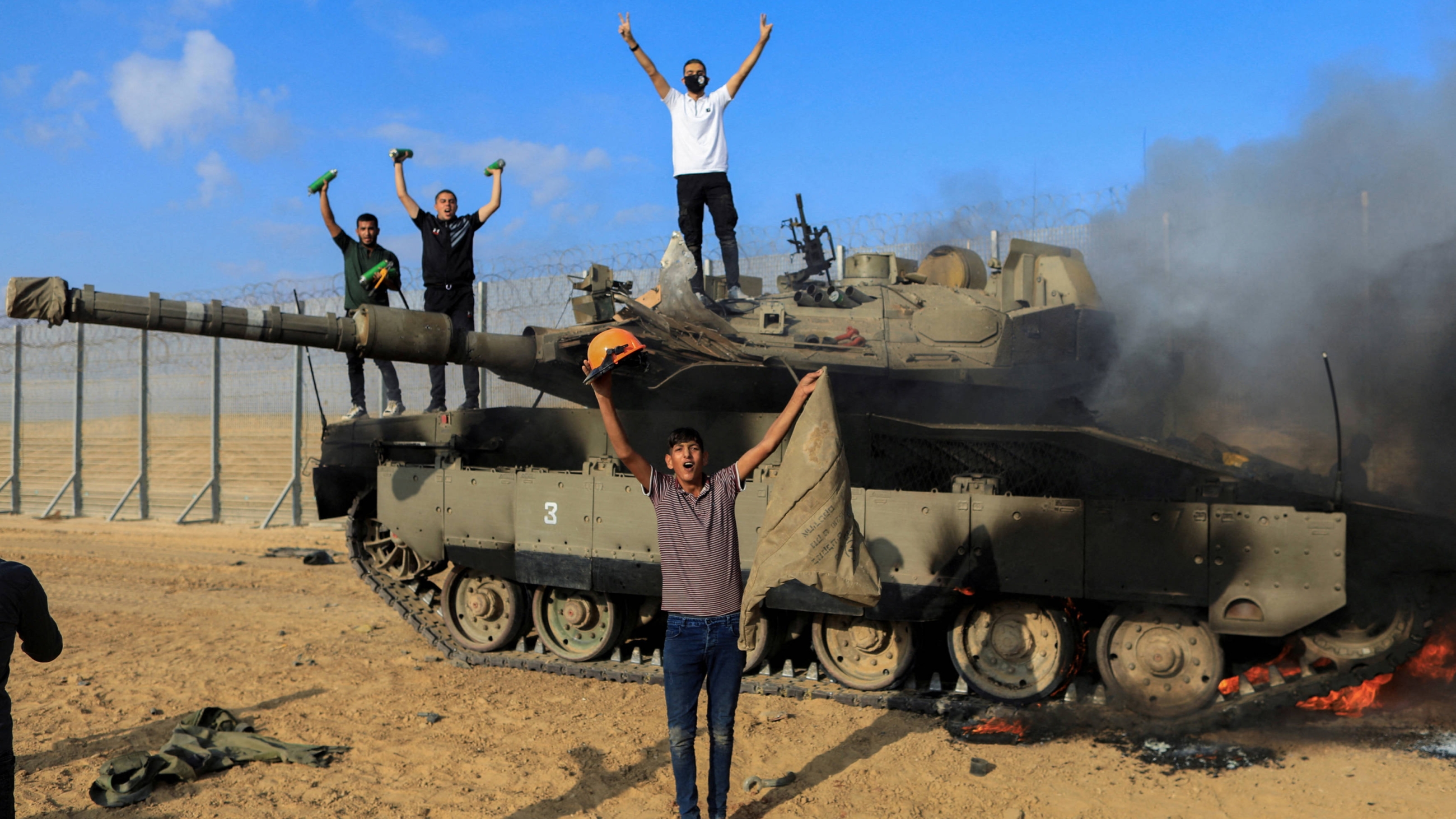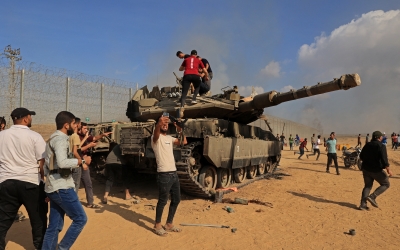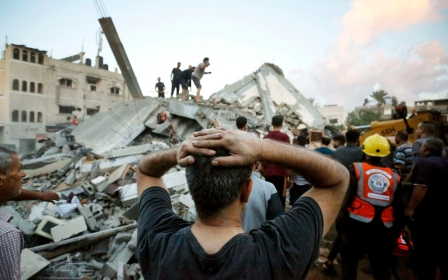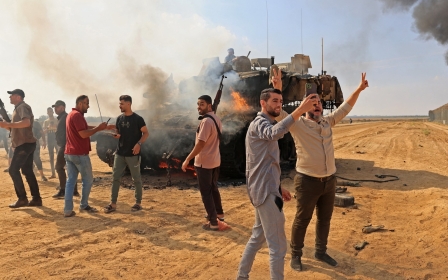Why captured Israelis are so important for Hamas

Israel's military spokesman has so far declined to comment on whether Israelis have been captured during a wide-scale attack launched by Palestinian resistance groups early on Saturday.
Hamas and the Islamic Jihad have said they captured several Israeli soldiers and released videos purportedly showing their fighters holding Israelis in custody.
Hamas's political representative, Saleh al-Arouri, told Al Jazeera Arabic that they have Israeli commanders in custody.
Meanwhile, several Palestinian accounts on social media are posting videos and photos allegedly showing captured Israeli soldiers and civilians being taken back into Gaza.
Online footage on X, formerly known as Twitter, also shows Palestinians taking military vehicles back into the besieged enclave.
An Israeli security source, speaking to Reuters anonymously, said they were aware of reports of captives being held.
Much of the footage remains unverified. In the event that the reports are confirmed, the number of Israelis being held by the Palestinian groups, dead or alive, will likely become a politically hot-button issue in Israel.
In Palestine, the fate of Palestinian prisoners held in Israel is also an important issue, increasingly so under the most far-right government in Israel's history.
Over the past year, Israel's far-right national security minister, Itamar Ben Gvir, has sought to clamp down on the rights of Palestinian prisoners in Israeli jails.
Follow Middle East Eye's live coverage for the latest on the Israel-Palestine war
From limiting family visits to moving dozens of Palestinians to Nafha prison, widely considered to be one of the most notorious in the country, Ben Gvir has adopted a policy of making the lives of Palestinian prisoners incrementally more difficult.
There are around 5,200 political prisoners in Israeli jails, including more than 1,264 administrative detainees, according to Palestinian rights group Addameer.
Under Israel's discriminatory system, Palestinians tried in military courts have a conviction rate of 99.7 percent, while Israelis are very rarely convicted over attacks on Palestinians.
About a quarter of Palestinian prisoners are held without charge or trial in a controversial practice known as "administrative detention".
Past prisoner swaps
Mohammed Deif, the leader of Hamas's military wing, said that Saturday's attack was in part because Israel had recently declined to participate in "humanitarian prisoner swap" agreements.
"Hundreds of our prisoners have spent 20 years and upwards in the darkness of jail cells. And tens of our brothers and sisters in prison have had their bodies exhausted by cancer and disease, and many have died as a result of medical negligence and premeditated slow murder," said Deif.
In the past, captured Israelis have been important for Palestinians to facilitate the release of Palestinian prisoners in Israeli jails as part of prisoner-swap deals.
Perhaps one of the best-known cases is that of Gilad Shalit, an Israeli soldier who was captured by Hamas in a cross-border raid near Gaza in 2006. He was held for more than five years before being released in a prisoner exchange in 2011.
That exchange, commonly referred to as the "Shalit Deal", was a significant and highly publicised event resulting in Shalit being released in exchange for the freedom of more than 1,000 Palestinian prisoners held in Israeli jails.
Depending on how many Israelis have been captured at the end of this campaign, a similar prisoner exchange may take place that dwarfs previous ones.
The prisoner exchange of 2011 highlighted the high value placed on the return of captured soldiers by the Israeli government that Hamas is likely to capitalise on.
There are also four Israelis, believed to be dead, who have been held in Gaza since 2014.
Two are soldiers captured during the Israeli war on the territory in the summer of 2014. The other two are civilians who had entered Gaza under unclear circumstances.
Prisoner exchanges between Israel and Hezbollah, the Lebanese armed group, have also taken place several times over the last four decades.
In 1985, the Jibril Agreement, named after Ahmed Jibril, the leader of the Popular Front for the Liberation of Palestine - General Command, resulted in Israel releasing over 1,150 Palestinian and Lebanese prisoners, including some from Hezbollah.
This was done in exchange for the release of three Israeli soldiers - Yosef Grof, Nissim Salem and Hezi Shai - captured during Israel's war on Lebanon in 1982.
In 2004, another prisoner exchange was carried out between Israel and Hezbollah.
Elhanan Tannenbaum, an Israeli businessman, was kidnapped by Hezbollah in 2000 during a trip to Dubai and was held captive in Lebanon. In 2004, he was released in exchange for several Lebanese and Palestinian prisoners held by Israel.
In 2008, Israel and Hezbollah conducted another important exchange in which Israel handed over the remains of 199 Lebanese and Palestinian fighters in return for the remains of two Israeli soldiers, Eldad Regev and Ehud Goldwasser.
These soldiers were captured and killed by Hezbollah in a cross-border infiltration by the Lebanese group in 2006, which sparked a 34-day war on Lebanon. This exchange was facilitated with the mediation of the International Committee of the Red Cross.
Middle East Eye propose une couverture et une analyse indépendantes et incomparables du Moyen-Orient, de l’Afrique du Nord et d’autres régions du monde. Pour en savoir plus sur la reprise de ce contenu et les frais qui s’appliquent, veuillez remplir ce formulaire [en anglais]. Pour en savoir plus sur MEE, cliquez ici [en anglais].





